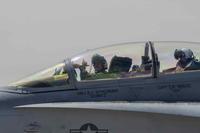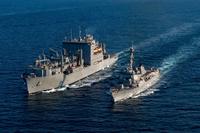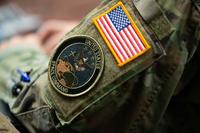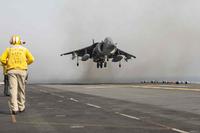Pentagon and Obama administration officials on Tuesday defended the deal with Turkey to start flying missions against ISIS from Incirlik airbase even after Turkey has started attacking Kurdish militants in Northern Iraq.
"Absolutely not," said Navy Capt. Jeff Davis, a Pentagon spokesman, when asked if Turkey's agreement to allow the U.S. to fly fighter and drone missions against ISIS out of Incirlik was tied to the Turks' campaign against Kurdish factions.
In a background phone briefing with reporters, a senior Obama administration official also said that Turkey's airstrikes this week against PKK (Kurdish Workers Party) positions in northwestern Iraq had "nothing to do with" the agreement for the use by the U.S. of Incirlik.
Another Kurdish faction, the PYD (Democratic Unity Party), has also charged that its military wing, the YPG (People's Protection Units), has been shelled by Turkish artillery inside Syria. The YPG has been one of the most effective ground units in fighting ISIS and has been backed by U.S. airstrikes in the defense of the border town of Kobane.
Turkish officials said they were investigating the charges of shelling inside Syria while denying that YPG forces were a target.
A Turkish official told the Agence France Presse news agency that "the ongoing military operation seeks to neutralize imminent threats to Turkey's national security and continues to target ISIL (another acronym for ISIS) in Syria and the PKK in Iraq."
The official said the "PYD along with others remains outside the scope of the current military effort."
The BBC quoted Kerem Oktem, an analyst at the Center for Southeast European Studies, as saying that Turkish policy was "to pretend that it is waging a war against IS (Islamic State), while at the same time following up on another goal, which is to destroy the PKK."
The senior Obama administration official said the attacks on the PKK in Iraq stemmed from recent incidents inside Turkey in which police and others were killed. The official also noted that the U.S. lists the PKK as a terrorist organization. Turkey would not be conducting airstrikes in Iraq "if the PKK did not launch attacks in Turkey," the official said.
The main goal of the agreement with the Turks was to create a 68-mile "safe zone" along the Syria-Turkey border to allow for the return of some of the estimated 1.8 million refugees now residing in Turkey, the official said.
In a statement Monday, Sen. John McCain, R-Ariz., pointed out the potential complications stemming from the agreement with Turkey for the use of Incirlik.
"Turkey's decision to assist the fight against ISIL is a positive step in the right direction. The use of Turkish bases for U.S. fighter aircraft will improve response times and increase the opportunity to collect intelligence in Syria," McCain said.
"However, we are concerned about reports of Turkish forces shelling Kurdish villages inside Syria," McCain said. "As the United States and Turkey enhance our cooperation against ISIL, we believe these mutual efforts will be most effective in collaboration with local forces on the ground, including the Kurds."
In Brussels Tuesday, NATO ambassadors backed Turkey's right to self-defense in going after ISIS while urging Ankara to engage in outreach to the Kurds.
-- Richard Sisk can be reached at richard.sisk@military.com



























